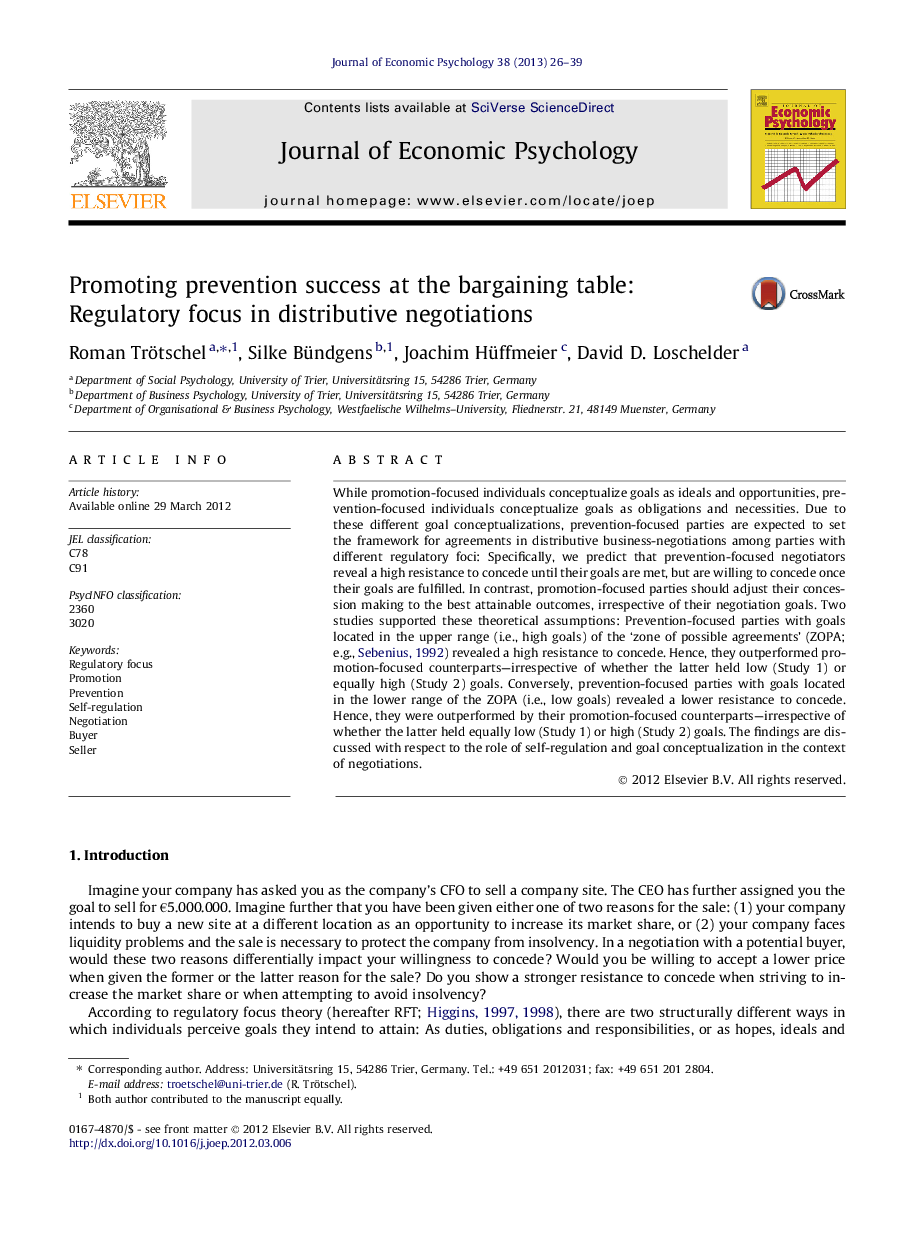| کد مقاله | کد نشریه | سال انتشار | مقاله انگلیسی | نسخه تمام متن |
|---|---|---|---|---|
| 884970 | 1471728 | 2013 | 14 صفحه PDF | دانلود رایگان |

While promotion-focused individuals conceptualize goals as ideals and opportunities, prevention-focused individuals conceptualize goals as obligations and necessities. Due to these different goal conceptualizations, prevention-focused parties are expected to set the framework for agreements in distributive business-negotiations among parties with different regulatory foci: Specifically, we predict that prevention-focused negotiators reveal a high resistance to concede until their goals are met, but are willing to concede once their goals are fulfilled. In contrast, promotion-focused parties should adjust their concession making to the best attainable outcomes, irrespective of their negotiation goals. Two studies supported these theoretical assumptions: Prevention-focused parties with goals located in the upper range (i.e., high goals) of the ‘zone of possible agreements’ (ZOPA; e.g., Sebenius, 1992) revealed a high resistance to concede. Hence, they outperformed promotion-focused counterparts—irrespective of whether the latter held low (Study 1) or equally high (Study 2) goals. Conversely, prevention-focused parties with goals located in the lower range of the ZOPA (i.e., low goals) revealed a lower resistance to concede. Hence, they were outperformed by their promotion-focused counterparts—irrespective of whether the latter held equally low (Study 1) or high (Study 2) goals. The findings are discussed with respect to the role of self-regulation and goal conceptualization in the context of negotiations.
► Two studies investigate the interplay of negotiator’s regulatory focus and goal level.
► Prevention parties outperformed promotion counterparts when focusing on high goals.
► Prevention parties with low goals were outperformed by promotion counterparts.
► Effects on outcomes were due to parties’ differential willingness to concede.
Journal: Journal of Economic Psychology - Volume 38, October 2013, Pages 26–39